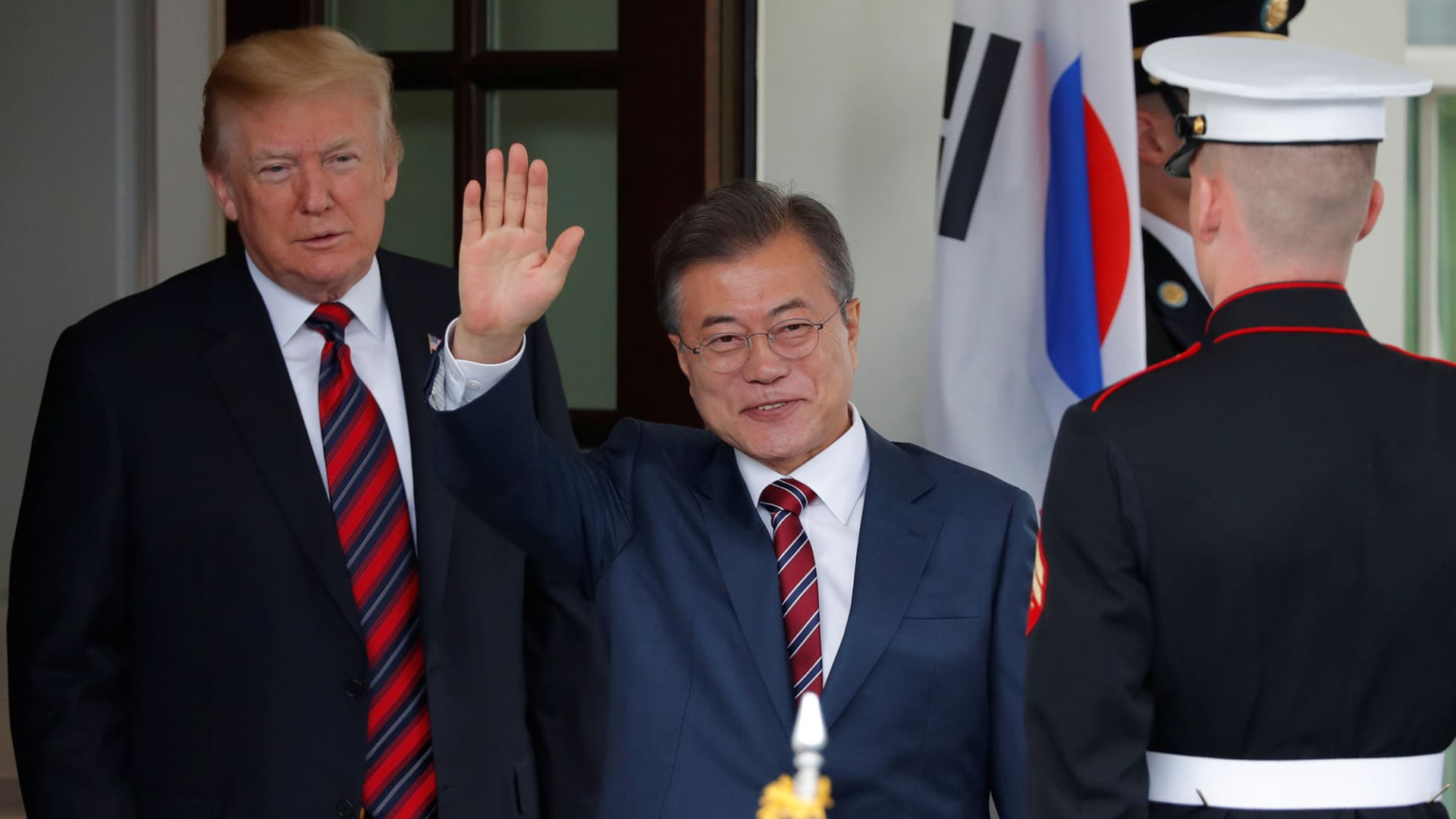
Trump’s Tariff Threats: Impact on Auto Industry and Global Trade Dynamics
Introduction
President Donald Trump is set to escalate his trade policy by threatening additional tariffs on U.S. trading partners. The automotive industry, particularly in regions outside of North America, braces for significant impacts, especially from potential new levies on South Korea and Japan.
Imports from South Korea and Japan
According to recent data from GlobalData, combined imports from these East Asian nations made up 16.8% of vehicle sales in the U.S. last year. Remarkably, South Korea contributed 8.6%, while Japan accounted for 8.2%. These countries stand as the foremost vehicle importers to the U.S. after Mexico, with minimal existing duties compared to the 25% tariff Trump aims to impose on imports from Canada and Mexico.
Major automakers like General Motors (GM) and the South Korean firm Hyundai Motor benefit from tariff-free exports from South Korea. Last year, South Korea became the second-largest supplier of new vehicles to the U.S., surpassing both Japan and Canada, with only Mexico leading at 16.2% of U.S. auto sales, as noted by GlobalData.
Industry Reactions
Jeff Schuster, GlobalData’s global vice president of automotive research, emphasized the significant exposure Hyundai has to these potential tariffs, with GM closely following. However, the risk primarily concerns these two manufacturers.
Current Tariffs on Japanese Vehicles
Currently, vehicles imported from Japan incur a 2.5% tariff affecting major players such as Toyota Motor, Nissan Motor, and Honda Motor. In 2024, Japan’s contribution to U.S. automobile sales amounted to approximately 1.31 million units, although its market share has seen a decline. Conversely, South Korean vehicle exports to the U.S. rose significantly from approximately 845,000 in 2019 to over 1.37 million in 2024.
U.S.-Korea Trade Agreement
Even after renegotiating a trade deal with South Korea during his initial term in 2018, which aimed to enhance vehicle imports to the Korean market, the agreement has not substantially bolstered vehicle exports to the U.S. In fact, exports of U.S. passenger vehicles to South Korea have dropped by about 16%. Notably, while trucks exported from both South Korea and Japan face a 25% tariff, passenger cars enjoy a 0% tariff status.
Consumer Impact and Market Adjustments
Tariffs typically represent taxes imposed on imported goods, and industry experts worry that companies might pass any added expenses onto consumers, elevating vehicle prices and possibly dampening demand. Terence Lau, a former trade expert and current dean at Syracuse University, pointed out the auto industry’s long-standing reliance on free trade and its need for time to adapt to any changes in tariffs. While minor tariffs create minimal disruption, any significant increases, particularly above 10%, could severely impact margins.
Call for Comprehensive Tariff Policy
Ford CEO Jim Farley has advocated for a thorough evaluation of tariffs affecting the automotive sector, suggesting that if Trump proceeds with new tariffs, they should apply equitably across all nations participating in the U.S. market. He voiced concerns about the large import volumes from manufacturers like Hyundai and Toyota, urging a more balanced approach.
Looking Ahead
The White House has yet to comment on the proposed tariffs affecting South Korea. Trump is expected to hold a press conference to detail his plan for reciprocal tariffs, creating uncertainty around whether these countries will be included. Reports indicate that some exemptions might be considered for industries such as automotive and pharmaceuticals, according to Republican U.S. House Speaker Mike Johnson.
Conclusion
The evolving tariff landscape continues to shape the automotive industry response and global trade relationships. As the market navigates these uncertainties, companies will need to remain agile to meet consumer demands while adapting to potential cost increases.









